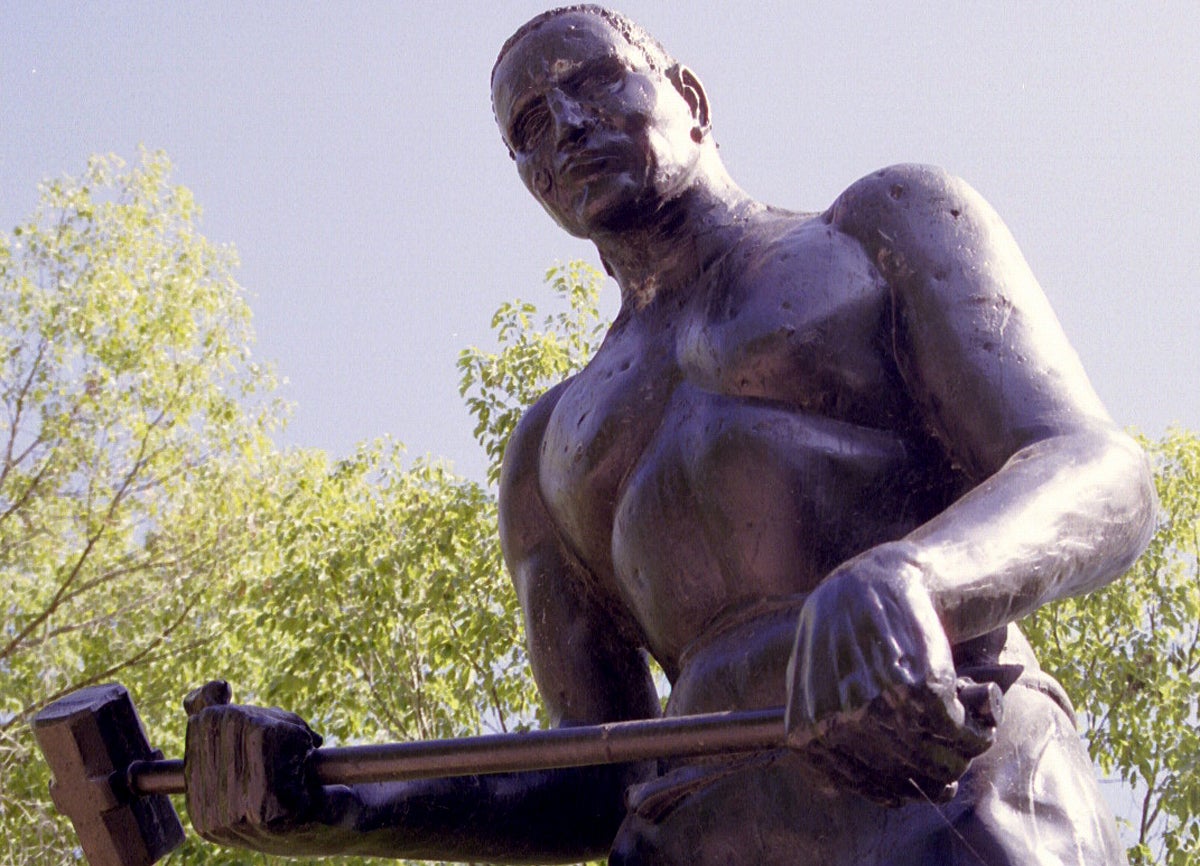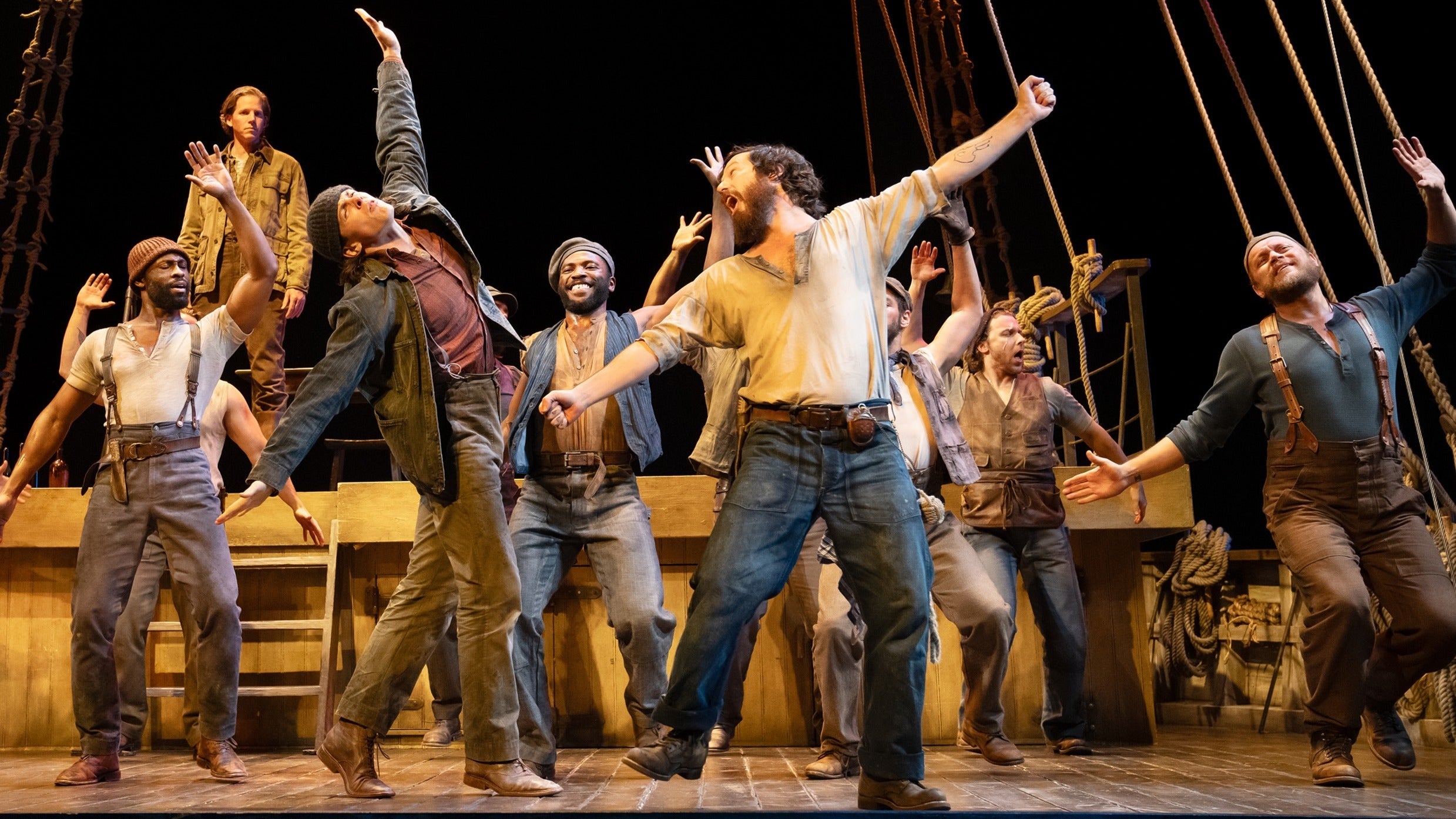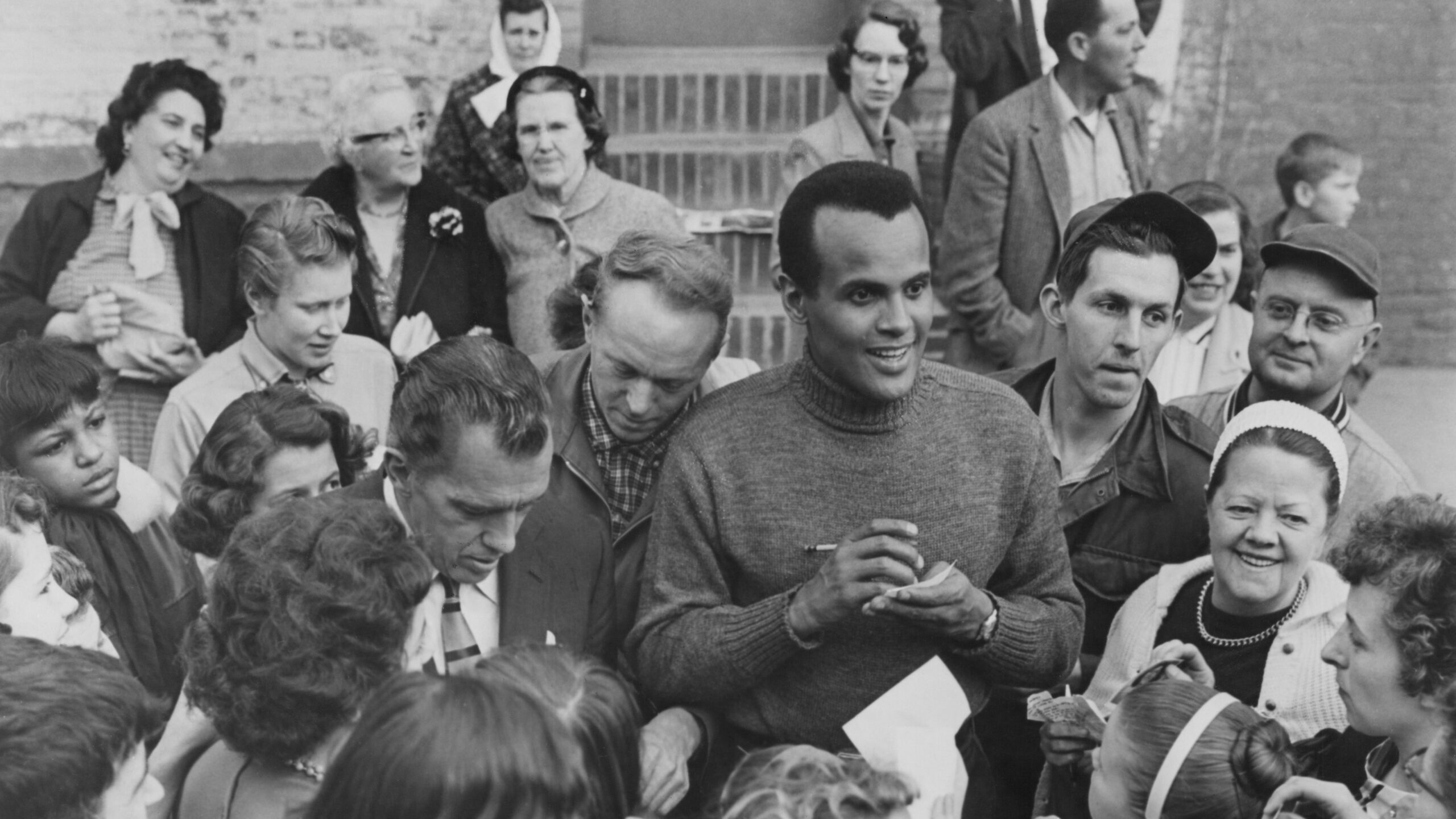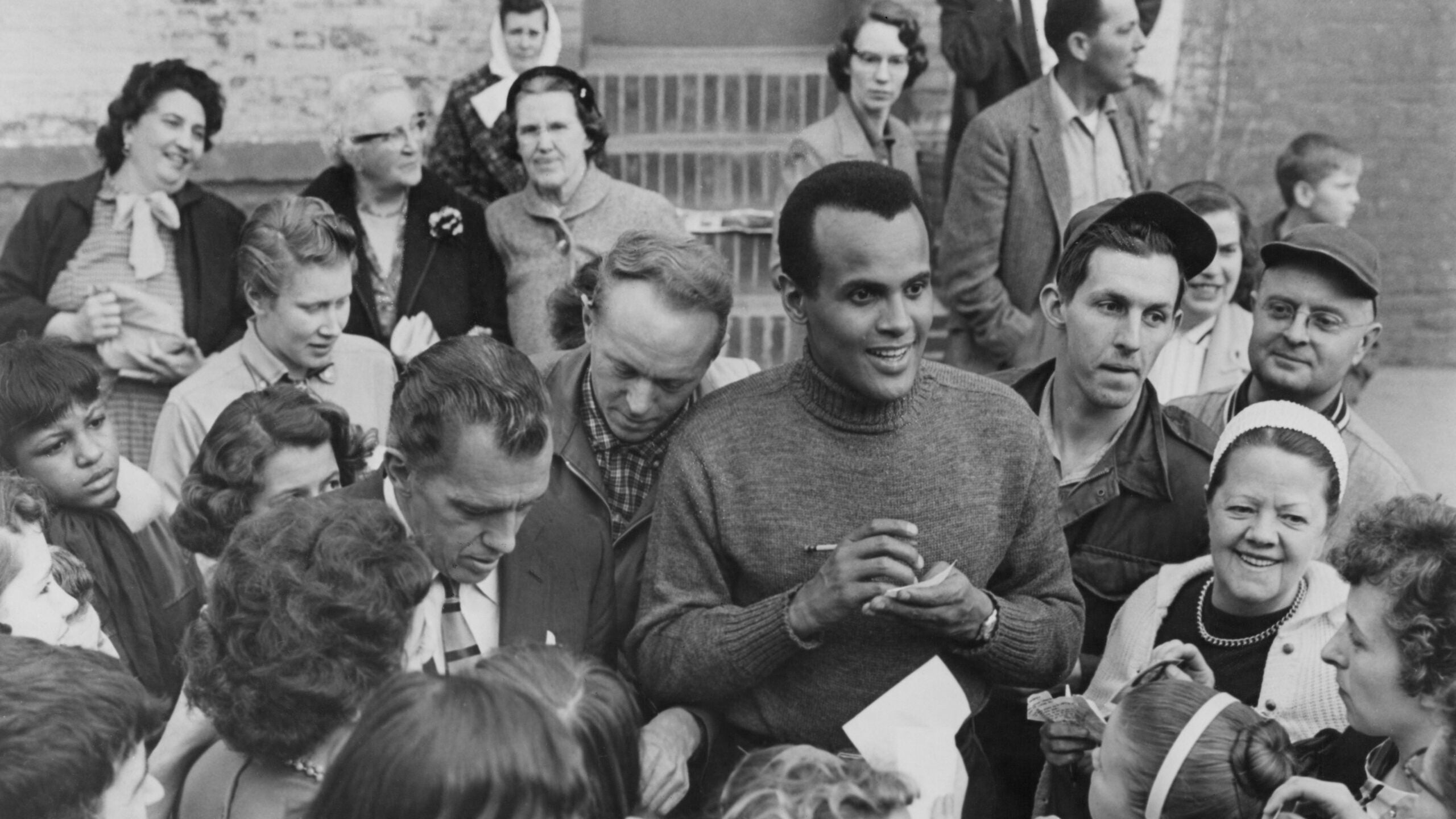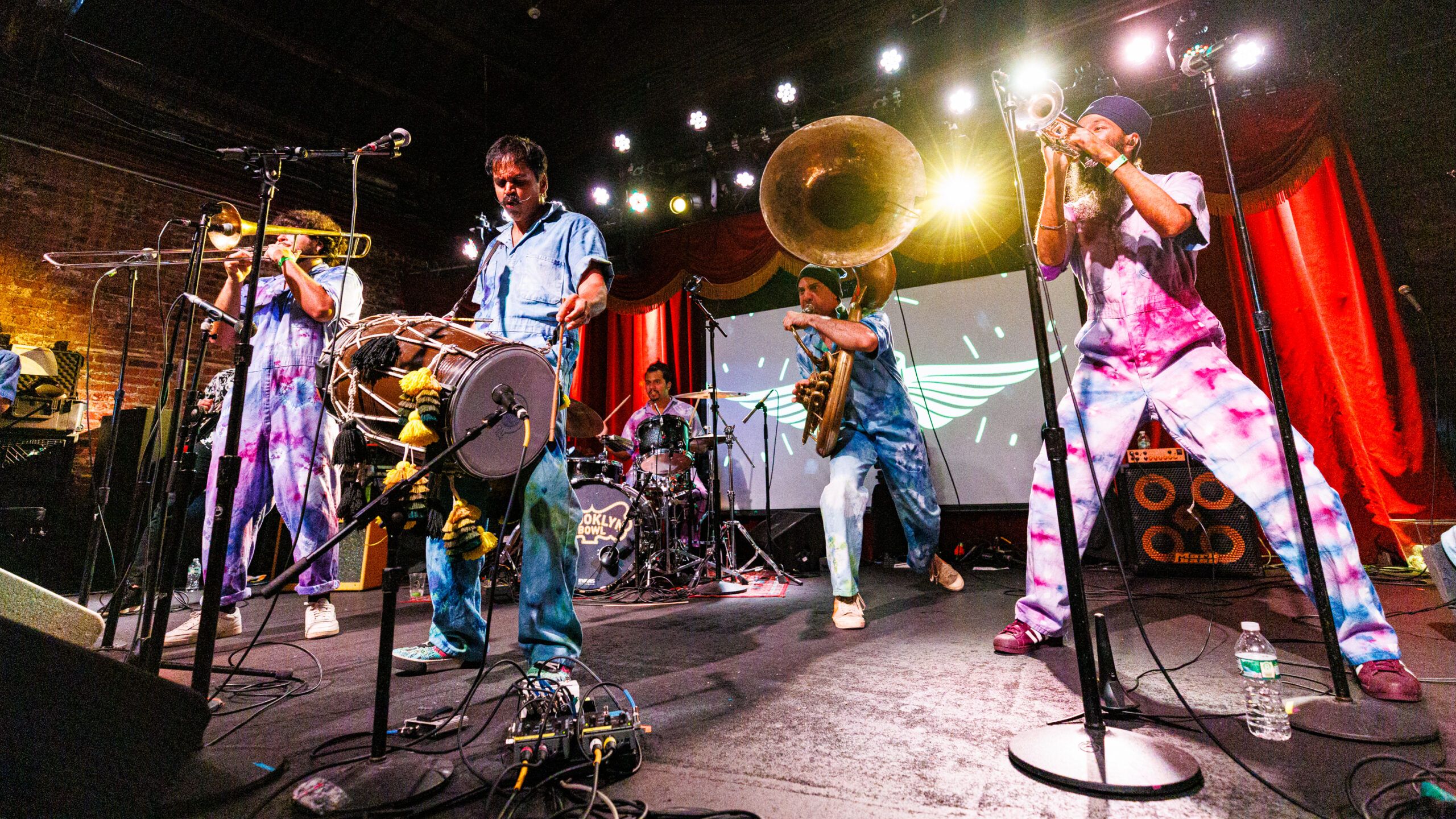“Human versus machine” is a common theme in books and movies these days. From fears of a dystopian future ruled by artificial intelligence to today’s struggle to make driverless cars safe.
This push and pull seen in an uncertain future can be seen in Stanley Kubrick’s 1968 film, “2001: A Space Odyssey” (based on the short story by sci-fi legend Arthur C. Clarke), but the humans-versus-machine conflict probably got its start with the Industrial Revolution.
These stories pose a common question: What do humans do when their work — their livelihood and part of their identity — can be replaced by a machine and even done better? One answer is, they stand up for their dignity … at least that’s what John Henry did.
Stay informed on the latest news
Sign up for WPR’s email newsletter.
The old folk song, “John Henry,” tells the story of a black man who stood up to the new technology of the day, a steam drill. He gets in a contest driving railroad spikes with the drill, but, in a way, he’s really standing up to the those in power who would replace him so easily for greater efficiency and, presumably, greater profit.
Some contend that John Henry was a real person, a man emancipated from slavery, then imprisoned, and later found himself working on the construction of the C&O Railroad. Others believe that the truth of his existence can’t be proven.
In any case, what isn’t debatable is the importance of Henry’s story to the African-American community, with its themes of dignity and power. Over time, he became a folk hero to many more people, from coal miners and railroad workers to prison work gangs, labor unions and more.
While versions of the “John Henry” song vary, most start out with lyrics similar to this rendition that folk-music legend Pete Seeger would play:
John Henry was about three days old,
Sittin’ on his papa’s knee.
He picked up a hammer and a little piece of steel;
Said, “Hammer’s gonna be the death of me, Lord, Lord.
Hammer’s gonna be the death of me.”
From there, the story jumps his time working on the railroad driving spikes, when his boss, the Captain, says the steam drill is coming to do John Henry’s work. His response is:
“A man ain’t nothin’ but a man,
But before I let your steam drill beat me Down,
I’d die with a hammer in my hand. Lord, Lord.
I’d dies with a hammer in my hand.”
So, the contest begins, and John Henry beats the steam drill, but at a price:
John Henry hammered in the mountain
His hammer was striking fire.
But he worked so hard, he broke his poor heart.
He laid down his hammer and he died. Lord, Lord.
He laid down his hammer and he died.
Here’s a version of the song by Sonny Terry and Brownie McGhee:
Sometimes, she’s mentioned early in the song, and sometimes, it’s after John’s death, but his wife, Polly Ann, continues the struggle for dignity and empowerment:
John Henry had a little woman.
Her name was Polly Ann.
John Henry took sick and went to his bed.
Polly Ann drove steel like a man. Lord, Lord.
Polly Ann drove steel like a man.
The group, Our Native Daughters, made up of Rhiannon Giddens, Amythyst Kiah, Leyla McCalla and Allison Russell, recently recorded their elaboration on the tale of Polly Ann in their 2019 album, “Songs of Our Native Daughters.”
In the voices of Our Native Daughters, the story of Polly Ann becomes a story of empowerment for women as well:
“Polly, can you lift that hammer?”
“Yes I can, Yes I can”
“I can swing it, I can strike it”
“Harder than any man can”When Polly had a small baby
On her knee, on her knee
Grabbed a hammer in her left hand
“Ain’t no one as strong as me”This little hammer killed John Henry
Won’t kill me, won’t kill me
This little hammer killed your daddy
Throw it down and we’ll be free
There are other versions of “Hammer” songs that don’t explicitly mention John Henry, but have the same theme of empowerment, like the song, “Take This Hammer.” Here’s a version from Leadbelly:
This song continues the themes found so prominently in “John Henry,” breaking free from the boss’ or technology’s constraints, claiming dignity and power and ultimately freedom in life or death.
Take this hammer, carry it to the captain…
Tell him I’m gone.If he asks you was I runnin’…
You tell him I was flyin’.I don’t want no cornbread and molasses…
It hurts my pride.
Humans versus machines, or technology, or the use of those tools to dehumanize us — from the Industrial Revolution on, it is an old tale that folk music frequently captures. The folk tradition has given us the song “John Henry,” but one wonders what songs will be sung in the future about our struggle to use wisely the technology we’re now inventing.
Wisconsin Public Radio, © Copyright 2024, Board of Regents of the University of Wisconsin System and Wisconsin Educational Communications Board.

